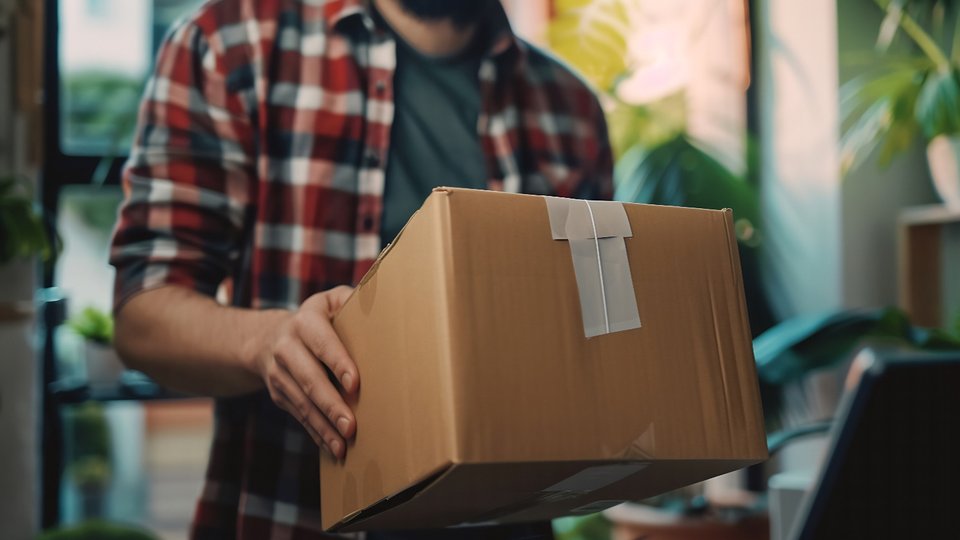Customer Service
How are returns management trends impacting customer experience?
Shifting customer expectations have played a major role in reshaping returns management. Online shoppers expect convenient, hassle-free return options and quick refunds.

November 27, 2024 by Rich Pirrotta — Executive Vice President, Americas, ReBound
Shifting customer expectations have played a major role in reshaping returns management. Online shoppers expect convenient, hassle-free return options and quick refunds. Meanwhile, tight budgets have made consumers more selective with their purchases, driving high levels of customer returns.
Retailers have had to innovate and look to emerging trends to manage the surge in returns whilst keeping pace with what consumers expect.
Despite being designed to improve customer satisfaction and the overall returns management process, these options can have unintended consequences for both consumers and retailers.
1. "Boxless" returns
"Boxless" returns, where customers return items without outer packaging, are gaining traction. Shoppers can simply take items to a drop-off point without needing to find packaging.
Removing the need to repackage goods seems consumer-friendly, but the approach has downsides. Certain types of items sent without protective packaging are more susceptible to damage during transit, which can impact potential resale. There are privacy concerns as well - some customers may prefer not to have their purchases visible when taking them to a drop-off point.
This can also be misleading from an environmental perspective. The lack of packaging seems eco-friendly, but many items are repackaged into thin plastic envelopes or bags at the drop-off point. These materials take longer to biodegrade than cardboard, and creates unnecessary plastic waste, as the items need to be repackaged again for restocking. With consumers increasingly taking environmental factors into consideration, misleading them about the environmental impact of boxless returns - even unintentionally – could harm brand loyalty.
2. "Returnless" returns
Growing numbers of customers are now receiving refunds without needing to send the item back at all. These are "returnless" returns, and they have become more common following the launch of Amazon's "Returnless Resolutions" program in August.
This approach can make sense when dealing with items where the cost to return would be higher than the item's value. Or, when an item is broken, and the retailer is unable to claim funds back from the manufacturer or has no capability to repair it. It also has the potential for the customer to purchase another item with their refund, which enables the brand or retailer to generate another sale.
However, it sets an incredibly high bar for customer convenience by removing the hassle of shipping entirely. The challenge lies in being able to consistently meet those standards. Customers who are offered this option once might start to expect it for every return, leading to disappointment when it's not available.
The opportunity for this approach leading to retailers and brands being taken advantage of through fraud is also a concern. Once knowledge of "returnless" returns is available more broadly, as with opportunists on the dark web, there can be a significant increase in fraudulent customers who only seek to game the system. Unless the organization has strong customer data and rules to prevent multiple returnless returns from the same customer, the approach will be costly.
It also brings significant sustainability issues. Yes, it reduces unnecessary shipping, but it also leaves an unwanted item with a customer. Academic research supported by ReBound and led by the University of Negev has found that an item can be returned, refurbished, and resold up to 16 times before it matches the carbon emissions of producing a new one. Allowing customers to keep unwanted items can lead to more waste, as items are often thrown away instead of being reused.
3. Stricter returns policies
With returns fraud on the rise, and record-high return rates, it's no wonder that this year has seen a tightening of returns policies.
Around two-thirds of shoppers check a returns policy before they complete a purchase. It's a key part of their buying decisions. So, a policy with a shorter returns window may be reducing a retailer's returns – but it's doing that by deterring sales in the first place.
Most people expect a returns window of at least 30 days. In that case, it takes an average of 12 days for consumers to make a return. However, doubling the window to 60 days only increases that average return time to 16 days.
Rather than reducing returns windows, retailers can extend them, only marginally affecting logistics but significantly boosting customer experience.
Some retailers are also moving away from offering free returns to offset rising transportation costs and environmental impact. This can frustrate customers who have come to expect unlimited free returns. Retailers can mitigate this by improving other aspects of the returns process – for example, 92% of consumers say that they would buy from a retailer again if the returns process is easy to navigate.
Implementing any returns management trends without first exploring the data to understand why returns are happening risks undermining customer experience. They may appear to streamline processes or cut costs, but they can create new problems. It's far better for both the retailer and the customer if the underlying causes of returns are addressed first.
Offering a seamless, easy-to-use returns process will not only reduce returns, but it will also improve customer satisfaction and brand loyalty. By focusing on the data, retailers can ensure that well-intentioned returns policies don't backfire and damage long-term relationships.
About Rich Pirrotta
Rich Pirrotta is a senior transformational leader with extensive board-level experience in technology, manufacturing, and professional services, having worked globally across 35+ countries. He currently serves as the Executive Vice President, Americas for ReBound, the leading global returns management specialist. By combining integrated returns software with an extensive logistics network, ReBound optimizes and manages the entire returns lifecycle. ReBound is part of Reconomy, the circular experts.
 ChatGPT
ChatGPT Grok
Grok Perplexity
Perplexity Claude
Claude




